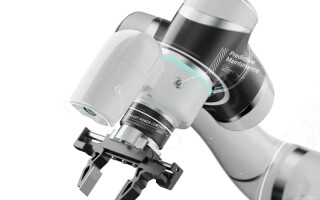Xiphera and Crypto Quantique Announce Partnership for Quantum-Resilient Hardware Trust Engines
November 07, 2024
News

ESPOO, Finland, and LONDON, UK -- Xiphera, a provider of highly optimized, hardware-based cryptographic security, announced its partnership with Crypto Quantique, a provider of quantum-driven IoT device security.
The combination of Xiphera’s nQrux® Hardware Trust Engines and quantum-secure cryptographic IP, with Crypto Quantique’s QDID PUF (Physically Unclonable Function), are designed to offer quantum-resilience and immutable device identity for cryptographic hardware modules.
The QDID PUF generates quantum-derived, secure, unclonable identities based on manufacturing variations unique to each semiconductor chip. The PUF, alongside other cryptographic primitives, forms the hardware root-of-trust IP required in security implementations.
nQrux Hardware Trust Engines offers customizable cryptographic security modules with hardware-level trust and security services for the most critical environments and applications. nQrux IP cores enable full isolation of cryptographic operations and application-specific data into secure hardware elements. Xiphera’s extensive portfolio of cryptographic IP cores includes both traditional cryptographic algorithms, as well as Post-Quantum Cryptography (PQC) fighting against the looming quantum threat.
“Upgrading these critical components to quantum-resilient algorithms and integrating Crypto Quantique’s PUF technology enables our customers to protect the identities and core security of their hardware devices into the foreseeable future,” said Kimmo Järvinen, co-founder and CTO of Xiphera.
Crypto Quantique’s CEO, Shahram Mossayebi, said, “The combination of nQrux Hardware Trust Engines and QDID provides the adaptability and upgradeability required for the security of connected devices. QDID creates random numbers on demand, so there is no need to store cryptographic keys in flash memory. This eliminates the danger of side-channel memory attacks revealing the keys. In addition, because PQC algorithms have large cryptographic keys, the PUF technology reduces the size of flash memory needed, reducing both power consumption and saving silicon area.”
For more information, visit: Xiphera’s nQrux Hardware Trust Engines, and Crypto Quantique’s QDID IP cores.





